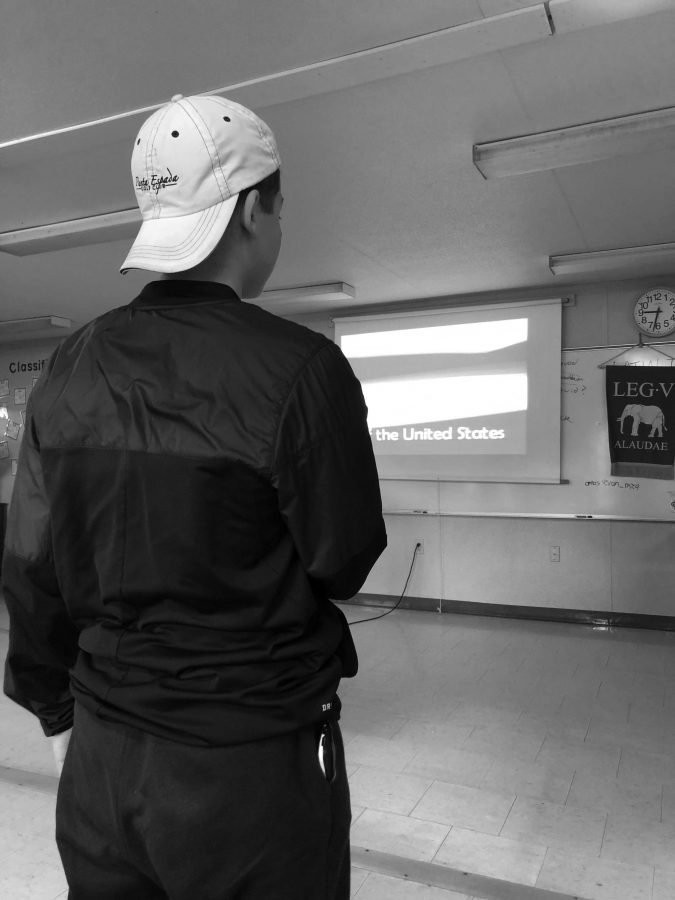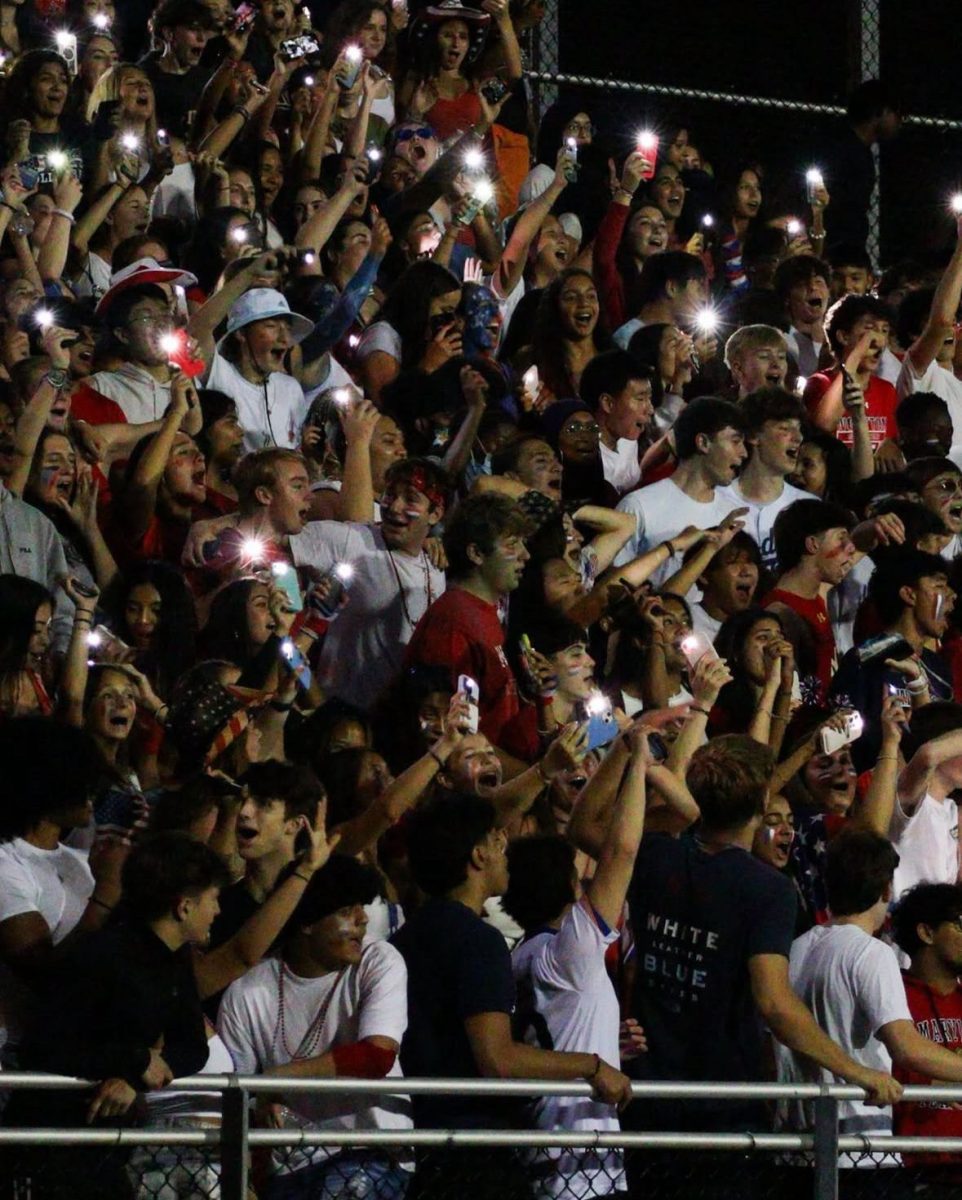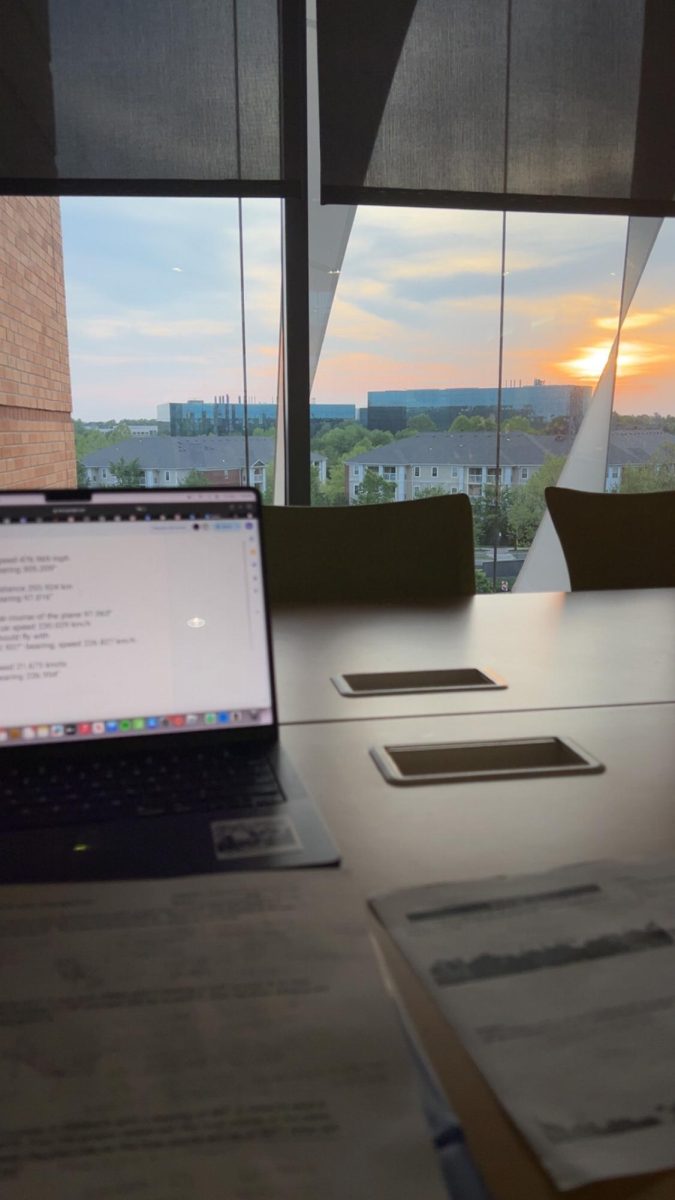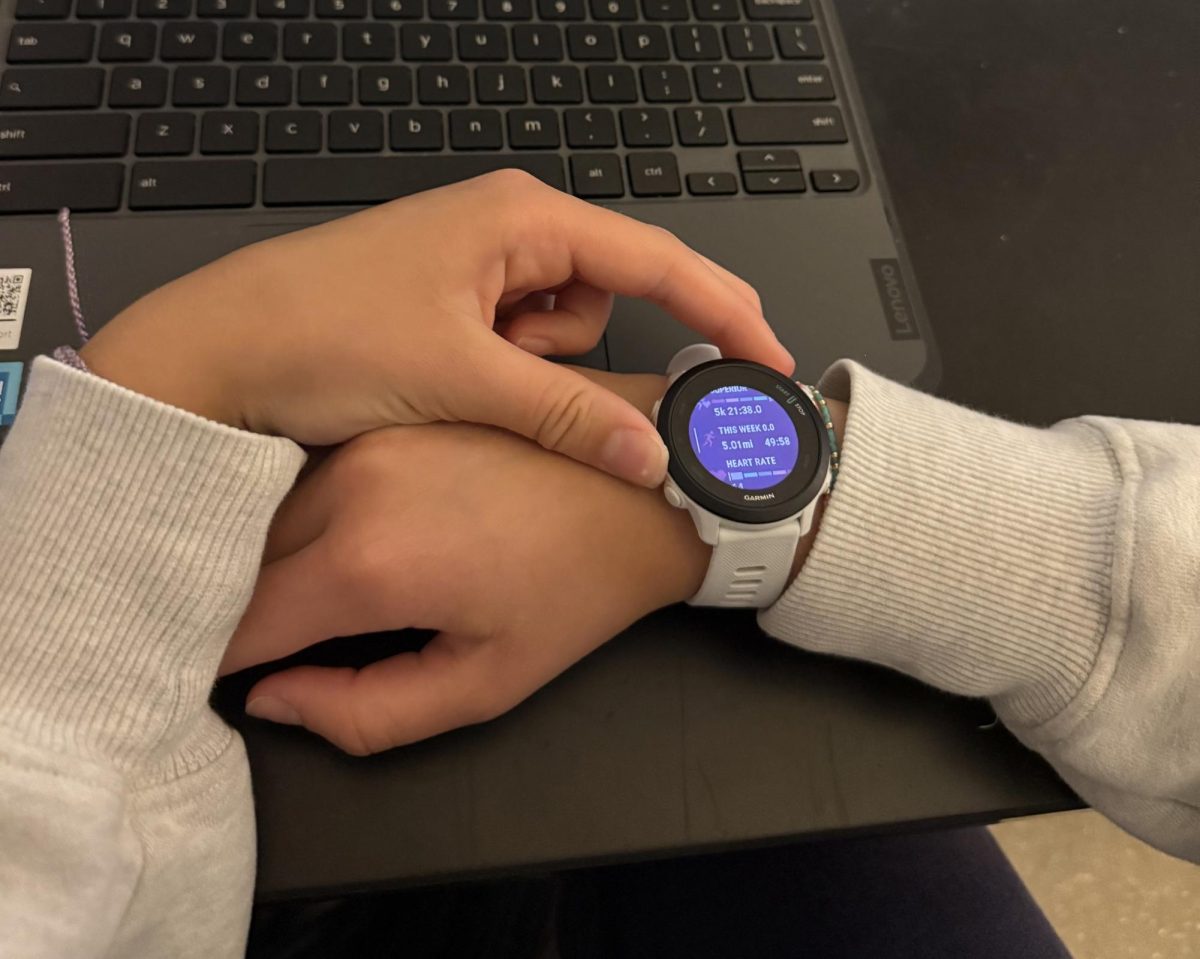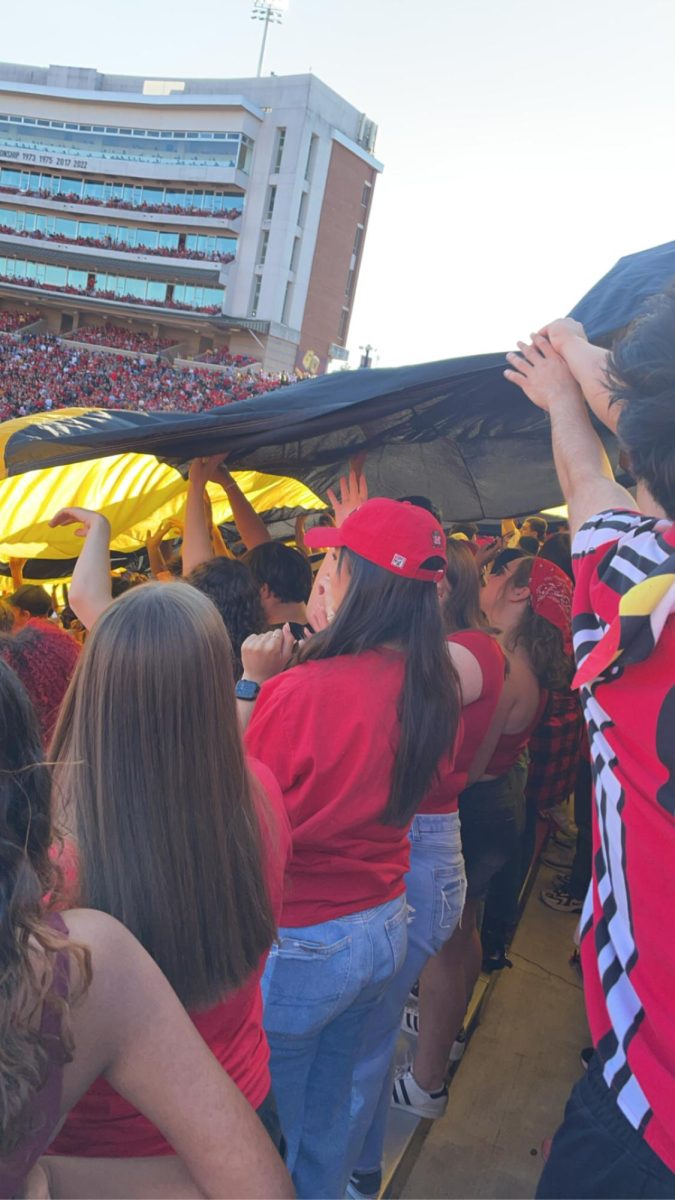Yes,
The pledge of allegiance was written in 1892, and has always served a meaning to Americans about what the United States stands for. It has served many purposes throughout history, and there are many reasons why the Pledge of Allegiance should stay and keep being recited in our schools.
The first reason why the Pledge of Allegiance should stay in our schools is because it brings a sense of patriotism to students. It puts forward the idea to people that no matter the chaos going on throughout the world, we’re still one country. “I think that even if for the one minute we’re actually saying it, the pledge helps me and others to focus on a purpose greater than ourselves,” junior Katie Barnett said.
Another reason why the Pledge of Allegiance should keep being recited in schools is because saying it doesn’t show your dedication to a certain political party or political values, but it shows that you support the Constitution and the Declaration of Independence. These documents are the foundation of our country and should be remembered by students all around the US. “It’s not like you can only say the Pledge if you’re Democrat or Republican; if you are living in the United States you are free to say it,” senior Kevin Scher said.
I understand that when people see that it brings in aspects of religion, some may get offended. But the fact is, that when this was written, almost everybody in America was Christian and believed in one God. Although there are many more religions in the U.S. today, the message still applies to all, as in the higher power of their specific religion. It does not violate the First Amendment; a protection of religious freedom.
The last reason why the Pledge should be recited throughout the country by students is because it reminds people of the fallen soldiers we have lost by defending the United States throughout history. When I say the pledge I think of all the graves in Arlington National Cemetery and who each of those people were before they died.
It’s important to point out that it’s not required to say it. All it does it show loyalty to the country and bring attention to the patriotism all students should have.
The Pledge is meant to be an emblem to school children, showing them what being an American is about and showing the possibility of having patriotic values. “I think it brings students together because it just focuses on the positives of being an American. It doesn’t show the negativity that this country often faces,” sophomore Jamie Reyer said.
-Sarah Levine
staff writer
No,
“I pledge allegiance to the flag of the United States of America and to the republic for which it stands, one nation, under God, indivisible, with liberty and justice for all.”
Every morning in public schools across the country, millions of students recite the 31-word Pledge of Allegiance while standing with hands over their hearts. The Pledge of the Allegiance in its original form was composed in 1892 by Francis Bellamy and was altered to include the phrase “under God” in 1954.
In 1943, the Supreme Court case West Virginia State Board of Education v. Barnette ruled that schools cannot force a student to recite the Pledge of Allegiance without violating the First Amendment to the U.S. Constitution, nor can they be punished for not saying the Pledge.
In light of recent political events such as the Kavanaugh hearing and the general unrest in this country, the patriotic demonstration of the Pledge of Allegiance no longer holds the place of high esteem it once did. It’s difficult to say “one nation” when it feels we are splintered into a million little pieces. Similar to the NFL kneel protest, not saying the Pledge of Allegiance can be a way to protest the current administration. “I don’t stand up for the Pledge of Allegiance anymore ever since Trump got elected because the fact that people voted for him and supported his policies made me not believe in the message of the Pledge anymore,” junior Rebecca Hartman said.
While people don’t intend to disrespect the ideals of this country or the sacrifices of those who defend it, the politics of today alienate those who believe in the system but not the people running it. “In this political climate, I don’t support the government. I support the concept of the republic but not the current country,” senior Rachel Kerschenbaum said.
Especially in the last year, after the Parkland and Tree of Life shootings, people feel as if the government has abandoned them. If the government is willing to let its people die, it becomes very difficult to swear allegiance to it. “I don’t feel safe in America,” senior Janel Berlinger said.
Students start to say the Pledge of Allegiance in Kindergarten at five years old, and yet the value of it is never explained. Mindless repetition of 31 words isn’t loyalty. It’s a habit, another thing we do thoughtlessly each morning. “I don’t understand the point of it or what it has to do with school. I don’t feel like reciting something I don’t understand the point of,” senior Lily Foster said.
Even though it is illegal for the school to force you to stand, say the pledge or punish you if you don’t, teachers here and at other schools make students at least stand, and others make students say the Pledge. Regardless of the rulings of the Supreme Court, the Pledge of the Allegiance is compulsory in certain first periods. “I don’t think we should be forced to say something if we don’t agree with it,” junior Sufiya Van Gieson said.
In addition, not everyone who attends public school in the United States was born here or is an American citizen. For students who are living in the U.S. but not actually a citizen, the Pledge is a sharp reminder every morning of the difference between their peers and them. “I wasn’t born in this country and I feel obligated to say it and I don’t like feeling that,” senior Alex Blowers.
Personally, I don’t say the Pledge of Allegiance. It’s not disrespect; I believe in the values the United States and the Constitution represent. My problem with the Pledge of Allegiance is two-fold. Firstly, I don’t believe in pledging my loyalty to an inanimate object. Secondly, the inclusion of the phrase “under God” conflicts with my firm belief in the separation of church and state. By including religion the Pledge of Allegiance conflicts with the First Amendment and is unconstitutional.
Teachers here must stop asking or requiring or in any way indicating they desire students stand for or recite the Pledge. The Supreme Court has ruled firmly on this. Let us do what is right for us.
-Marisa Silverman
back page editor


